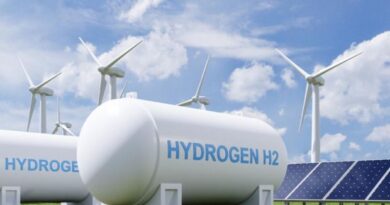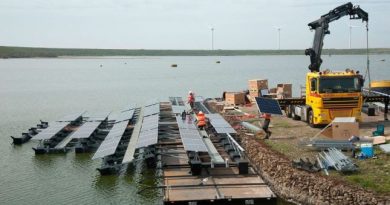How the Solar sector is becoming a magnet for entrepreneurs

The numbers tell a story. When India’s Minister for New and Renewable Energy announced a total solar capacity of India at over 23 GW on July 2018, it was a growth of over 9 times over the number on May 2014. That 9x growth shows no signs of stopping for now, with a capacity in the pipeline for another 25 GW well on its way, and a long term target of over 150 gw possibly by 2025.
These numbers have thrown up the obvious, be it new players, a scramble among older energy players to join in, and of course, a whole new ecosystem that offers opportunities aplenty. Thus, for the government, the sector has attractions beyond just meeting its energy goals, as it looks to catalyse investments and drive it to the fast lane. While it has done its bit, and like all governments, placed some speed breakers too, it has to be said that overall, other than manufacturing, where China had a massive headstart, India has done well to get where it has.
Be it the large developer firms like Renew Power, Adani Energy, SB Energy, or the large Rooftop focused firms like Amplus, Cleanmax or the multitude of specialist service providers the industry is humming with activity now.
Among the biggest job creating categories in this space is the cohort of installation firms, ie, firms that eventually install your solar system, well after the tendering, bidding and allotment done by the government agency, SECI. FutureGentec, founded by Prashant Kumar and his co-founders, is one of the many such ‘solar energy solution provider’. So just what got them to jump into the solar bandwagon?
Q: What was or is the idea behind FutureGentec? When do you think it changed from just being an idea?

A: We got this idea by observing the gap between demand and supply. Even today there are villages and people who don’t have access to electricity. And, the supply of coal & fossil fuels are cutting down, the relative prices are going up. This is the critical point we aim to work on. So, with this as the primary focus of our business, “Future Generation Technology LLP” is striving to provide & develop clean, cheap & sustainable energy to domestic, commercial & industrial customers.
We started thinking about working on the startup in late July 2017. So, I left my job and worked on getting to know more about the market demand, technology, and competition available & demand curve for next few years. In the process, our core team started taking shape and the chariot rolled on. We got it registered on Nov 8, 2017, at ROC Haryana.
Q: Tell us about services that FutureGentec currently provides and others that it plans to create in the near future?
A: We currently provide the services including EPC Solar Installation, Rooftop Systems, Ground Mounted Systems, Operation & maintenance, Solar Component supplies.
In the future we plan to work our way into solar charging station development, most likely by the end of this year. Also we are keen on expanding into Bio-fuels & system development which will include:
- Bio- oils for aero-space & automotive industry,
- Bo-cooking gas,
- Bio-electricity.
Q: Where do you see you company in 5 years from now? How are you planning to achieve this? One big prediction about the sector?
A: In upcoming 5 years, I want my company to achieve a good set of portfolios with a substantial customer base and a fair share of both domestic and corporate beneficiaries. We are also focusing on the idea of green buildings, this will include changing the outer glass walls of buildings with solar panels. We are also looking into developing a Bio–fuels technology, Integration of Solar electricity for EV-Charging station. We will achieve it by mutual collaboration with other startups in the segment and if necessary we will look for help from international firms. Also, being a Startup India recognized firm, I’ve been offered help from government agencies in the field for technological & product development.
One Big Prediction for this sector would be that solar & bio-fuels will be the major part of fulfilling our energy needs. These two industries will generate the maximum number of jobs. Along with that, development of charging station for EV’s will grow solar market exponentially. And as a result of that we will notice a gradual improvement in the economic stability of the country.
Q: What are the problems you are facing in doing business in the Indian solar sector?
A: Financially, since we are a bootstrapped company and we have to manage all our financial needs. But being a Startup India recognized startup, we are entitled to expect some help from the government and the department of commerce.
Besides this, government rules & regulation for grid tie system and subsidy sanctioning process sometimes set us back. As, you know only government empanelled companies can avail their customers subsidy. This is a kind of hurdle solar startups are facing in the present market.
Secondly, this empanelled process is done through tendering system which happens yearly for different states, so for a firm that starts work after the tendering process is complete is made to wait for a year. Now, that’s a little frustrating.
Q: What is the average cost of installation? Who are your competitors in the market right now and what makes you different from them?
A: Our average cost structure depends on whether the project is grid connected or off-grid and based on that, our off-system projects have a ₹74,000 – 80,000/kW depending on size and location and battery type. And for grid-tied systems it’s between ₹50,000- 65,000/kW depending on size and location.
I don’t consider others as competition, rather we compete with ourselves and collaborate and learn from their mistakes. Solar Industry has got several types of players and this is a type of industry where there is place for all if they maintain the standards. I feel that the government should nominalize the whole grid-tie process and provide startups a chance to scale up. Also, Net-metering process should be online and a one-window process. It will save a lot of time.
The factors which makes us stand out of crowd is our quality of work, ease of availability, fast service, after sales services, we work to build relationships and not just deals with our clients. END.
Back to the larger picture, as solar increases its share in the national energy mix, it can only be a good thing, especially as it is increasingly doing it without the support of subsidies. Solar prices have already started matching or bettering fossil fuel costs, and the foot is truly on the other shoe for the erstwhile fossil fuel plants, as they struggle to keep up with the falling rates.
Even on the jobs front, according to The International Renewable Energy Agency (IRENA), the renewable energy industry created more than 500 000 new jobs globally in 2017, with the total number of people employed in renewable surpassing 10 million for the first time.
Renewable Energy and Jobs, presents the status of employment, both by technology and in selected countries, over the past year.
- Jobs in the sector (including large hydropower) increased 5.3% in 2017, for a total of 10.3 million people employed worldwide, according to this fifth edition in the series.
- China, Brazil, the United States, India, Germany and Japan have remained the world’s biggest renewable energy employers, representing more than 70% of such jobs.
- While growing numbers of countries reap socio-economic benefits from renewables, the bulk of manufacturing still takes place in relatively few countries. Four-fifths of all renewable energy jobs in 2017 were in Asia, the report finds.
- Among the various technologies based on renewables, the solar photovoltaic (PV) industry supports the maximum number of jobs. PV jobs increased almost 9% to reach 3.4 million around the world in 2017, reflecting the year’s record 94 gigawatts of PV installation.





Great future ahead